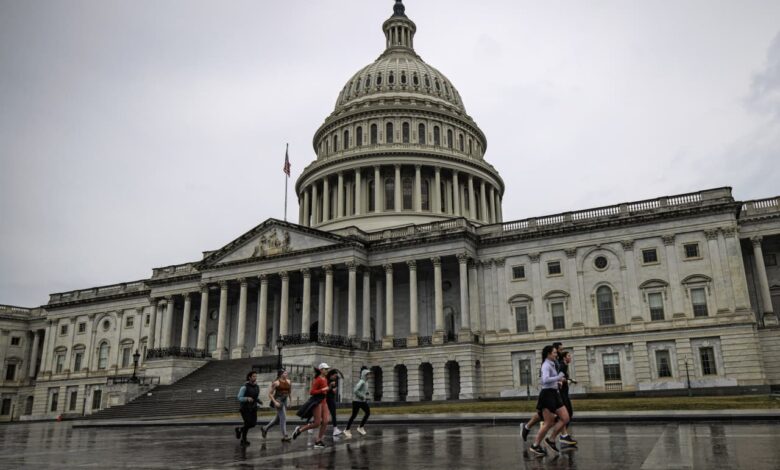U.S. budget deficit narrowed to $22 billion in January

The numbers: The U.S. federal budget deficit narrowed to $22 billion in January, down from $39 billion in the same month last year, the Treasury Department said Monday.
Economists surveyed by the Wall Street Journal had forecast a $21 billion deficit.
For the first four months of the fiscal year, the deficit widened to $532 billion, up from $460 billion in the same period last year.
Key details: In January, government receipts rose at a faster pace than spending compared with year ago levels, the department said.
Receipts were up $30 billion to $477 billion from a year ago while outlays rose $13 billion to $499 billion. The Congressional Budget Office said receipts were up because of collection of withheld income and payroll taxes. In addition, individual income-tax receipts fell.
Interest on the federal debt was $96 billion higher over the first four months of the fiscal year than from the same period a year earlier. The government has spent $357 billion on interest payments so far this fiscal year. The Federal Reserve’s recent rapid increase in interest rates to battle high inflation has led to higher interest payments.
Big picture: Last week, the Congressional Budget Office projected a roughly $1.5 trillion deficit this fiscal year that ends on Sept. 30. That’s down from the $1.7 trillion deficit last year.
Over the longer run, there is concern over the size of the deficit. The CBO said debt held by the public is expected to rise from $26.2 trillion to $48.3 trillion by the end of 2034. That’s 116% of gross domestic product, the highest level on record, economists said.
Market reaction: The yield on the 10-year Treasury note
BX:TMUBMUSD10Y
slipped to 4.165%. Stocks were higher with the Dow Jones Industrial Average
DJIA
up 217 points or 0.6%.

